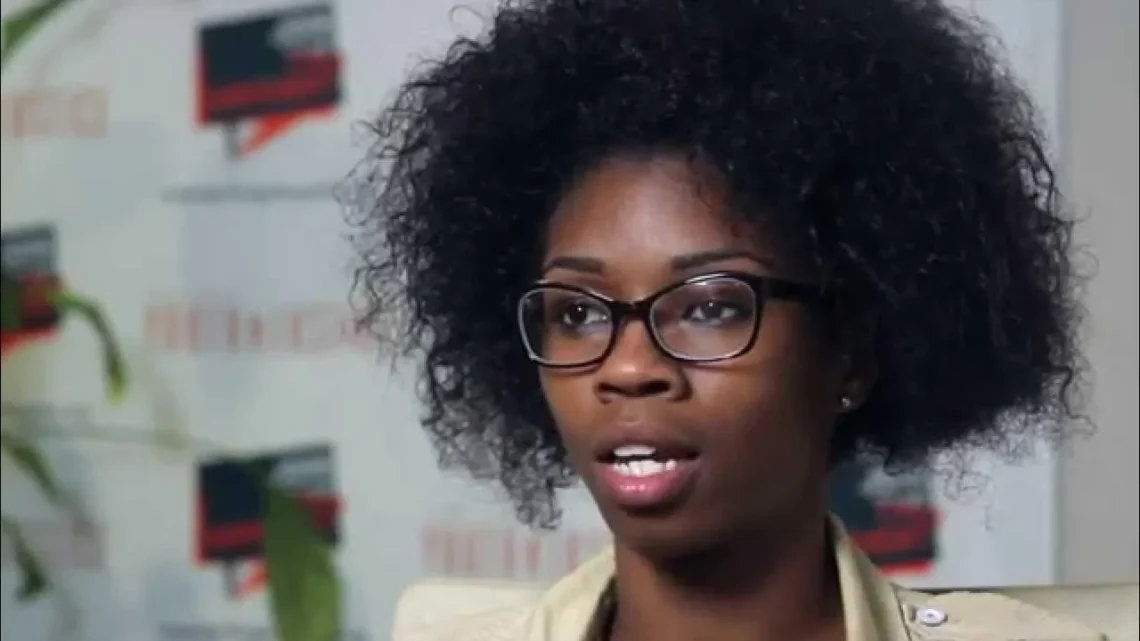Jabreria Handy is a name that has come to symbolize the human impact of juvenile justice policy, especially the controversial practice of charging minors as adults. Her personal journey—from being prosecuted at 16, to years behind bars and solitary confinement, to now becoming a youth advocate—serves as a powerful case study in reform, resilience, and systemic critique. This article explores her story, the legal and policy context, her activism, the reforms she supports, and the larger lessons for the juvenile justice system.
Early Incident & Criminal Charges
At age 16, Jabreria Handy life was catapulted into the criminal justice system under severe charges. According to Maryland Matters, Handy left her grandmother’s home after an argument over pictures; several hours later, her 69-year-old grandmother had a fatal heart attack. Despite Handy’s youth, Maryland law at the time automatically charged her as an adult, and she faced serious criminal counts including second-degree murder and first- and second-degree assault.
Handy spent 11 months in a Baltimore detention center awaiting trial, including at least 30 days in solitary confinement. Eventually she accepted a plea to involuntary manslaughter, and was transferred to a juvenile program for six to eight months.
This early trauma left lasting effects. She later said she still experiences anxiety in large crowds stemming from her confinement. Her case became a focal point in debates about automatic adult charging of minors, juvenile justice reform, and how the system treats young people in conflict with the law.
Legal & Policy Context: Charging Youth as Adults
Handy’s case is not unique—and its significance is magnified by the legal structure under which she was prosecuted. In Maryland (as in some other states), youth aged 14 to 17 could be automatically charged as adults for certain offenses, bypassing juvenile court protections. This system removes judicial discretion and developmental considerations.
Advocates argue that automatic adult prosecution undermines principles of rehabilitation, increases risk to youth in adult facilities, and misses opportunities for age-appropriate interventions.
Jabreria Handy has become a public face in policy discussions. At a rally for Maryland’s juvenile justice reform, she spoke about how being tried and held in the adult system stripped away protections she should have had, and urged lawmakers to “treat children as children.”
Legislators and public defender offices in Maryland have included ending automatic charging as a priority, citing cases like Handy’s as emblematic of broader systemic harm.
Jabreria Handy Advocacy & Public Role
In the years following her legal ordeal, Jabreria Handy pivoted toward advocacy and community work. Her lived experience gives her credibility and moral authority when speaking on youth justice.
Voice in Reform Campaigns
She has participated in policy forums, media interviews, and community events, leveraging her story to spotlight youth justice reform. Maryland Matters reports she partners with the public defender’s office and advocacy coalitions seeking to end the practice of automatically charging minors as adults.
Organizational & Professional Work
Handy has built a career in community services. According to LinkedIn, she holds a position as Community Site Specialist at KIPP Baltimore Schools, working to support educational outcomes and community engagement.
Her background also includes involvement with The Algebra Project in Baltimore, where she was part of efforts opposing plans for a juvenile detention center, particularly the expansion of incarcerating youth in adult settings.
Personal Impact & Messaging
Handy’s narrative is also deeply emotional. She has spoken about residual trauma, the psychological toll of incarceration and solitary confinement, and the importance of preventing future youth from enduring similar experiences. Her story is sometimes featured in youth justice commemoration projects, including the “40 for 40: 40 Stories for 40 Years of the JJDPA” video series spotlighting advocates and justice-impacted individuals.
By combining personal example with policy advocacy, Handy bridges the gap between lived experience and institutional change.
Impacts & Reforms Linked to Her Case
The prominence of Handy’s case has contributed to several shifts or proposals in Maryland’s justice landscape, as well as broader national debates.
Policy Proposals in Maryland
-
The Office of the Public Defender and allied advocates have pushed legislation to end automatic adult charging for youth. Handy’s case is often cited as justification.
-
Reforms proposed include restoring judicial discretion for trying minors, increasing funding for juvenile services, and diverting resources from adult prosecutions to supportive youth programs.
Awareness & Narrative Shift
Handy’s story helps humanize abstract legal debates. It challenges assumptions that minors prosecuted as adults are simply criminals; instead, her narrative highlights the psychological harm, developmental vulnerability, and injustices inherent in automatic adult charges.
Coalitional Activism
Her involvement with groups such as Just Kids and networks opposing youth incarceration helps galvanize grassroots pressure. In the past, cooperation between The Algebra Project, youth coalitions, and community organizations led to protests and budget decisions over proposed detention centers.
Legal & Academic Impact
Her testimony is cited in legal scholarship on youth in adult systems. For example, papers exploring youth in adult jails reference her experiences to illustrate how such legal policies affect real lives.
Overall, Handy’s case puts a face to the harms of prosecuting minors as adults, bolstering reform arguments across legal, legislative, and community spheres.
Challenges, Critiques & Ongoing Struggles
While Jabreria Handy advocacy is influential, the journey toward systemic reform remains fraught with obstacles.
Policy Resistance & Institutional Inertia
States may resist loosening harsh juvenile transfer laws due to concerns over violent crime, public safety, or political backlash. Automatic adult charging often has entrenched legislated support, making reform uphill. Handy’s case is compelling, but policy change requires legislative courage and broad consensus.
Trauma & Mental Health Outcomes
Handy continues to grapple with the long-term psychological effects of her juvenile prosecution and adult detention. Trauma from solitary confinement, institutionalization, and legal uncertainty is tough to overcome—even as one becomes an advocate.
Credibility & Public Skepticism
Critics of reform may assign skepticism to claims made by those with criminal backgrounds. Navigating public perception, stigma, and trust is part of the challenge for Handy and similar advocates.
Translating Personal Story into Systemic Change
One compelling personal case does not always translate to broad legal reform. Advocates must combine narratives like Handy’s with empirical research, cost analyses, coalition building, and legal strategy.
Balancing Professional Roles & Advocacy
As a community site specialist or public figure, Handy must navigate the balance between her job roles, advocacy, and personal wellness. Operating as a voice of reform while managing personal trauma is inherently challenging.
Lessons & Broader Implications
Jabreria Handy life and advocacy illuminate lessons for youth justice reformers, legislators, and society at large.
-
Lived experience is powerful
Personal narratives like Handy’s can shift public opinion, humanize policy debates, and keep reform grounded in human stakes. -
Automatic adult charging is deeply flawed
Handy’s case highlights how policies that treat minors as adults remove discretion, ignore developmental science, and expose young people to harm. -
Youth deserve age-appropriate treatment first
Rehab, counseling, education, and juvenile court protections should be the default—not the exception. Handy’s messaging often emphasizes this. -
Reform requires multi-pronged strategy
Legal changes, budget reallocations, public awareness, coalition work, and political advocacy all must converge. -
Healing and advocacy can co-exist
Though haunted by her past, Handy channels her experience into constructive reform work. Her journey shows that survivors of justice systems can be agents of change. -
Institutional structures matter
Even strong advocates can be limited by statutory frameworks, funding constraints, and political opposition. System change demands sustained effort and alliances.
Conclusion
Jabreria Handy life is a potent testament to the costs of a justice system that treats children as adults. Through her ordeal—charged at 16, remanded to adult detention with isolation, then later transformed into a reform advocate—she offers both a cautionary tale and a beacon of hope. Her voice strengthens campaigns against automatic adult charging, frames debates about juvenile justice reform, and helps bridge lived experience with policy activism.





